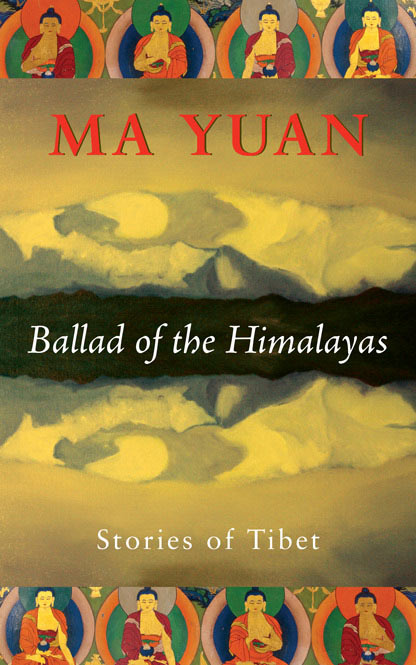Ballad of the Himalayas
Stories of Tibet
Ma Yuan
Translated by Herbert Batt
Introduction by Yang Xiaobin
2011, 332 pages
ISBN 978-0-9832991-8-9 Paper $25.00
ISBN 978-0-9832991-9-6 Cloth $50.00
“Ma Yuan’s groundbreaking experiment . . . opened up a new path for modern Chinese literature by shifting the literary paradigm from the absolute to the unsound, from the organic to the fragmentary, and from the logical to the puzzling. Ma Yuan disabled the supreme subjectivity in mainstream Chinese literature, and deconstructed the totalistic sociocultural discourse that had dominated twentieth-century Chinese modernism.”
—from the Introduction by Yang Xiaobin
In this collection of short stories, Ma Yuan tells enigmatic tales about an eponymous narrator’s travels in Tibet that question the very meaning of “story” and our assumptions about meaning itself. Yang Xiaobin’s introduction explores Ma Yuan’s role as China’s first postmodernist author. Ma Yuan’s stories and novellas develop metafiction in synergy with Tibetan Buddhism’s notion of the cosmos as an illusion.
Ma Yuan is of interest for his cloaked allusions to the tortured relationship between Chinese and Tibetans. Where government propaganda portrays the Chinese as the liberators of Tibet, “Vagabond Soul” depicts Chinese economic exploitation of Tibetans—the Chinese narrator bribes a Tibetan beggar to steal rare a rare old Tibetan coin mold for the narrator to mold counterfeits. A Fiction” is a tongue-in-cheek allegory of the Chinese fascination with “primitive” Tibet: a Chinese narrator’s love affair with a nubile Tibetan leper.
An aficionado both of western postmodernist fiction and of traditional Chinese Daoism, Ma Yuan portrays the disorienting interaction of traditional Tibetan life and Chinese “modernization” so as to render absurd the rational premises of what we usually call “the modern world.”
Ma Yuan moved to Tibet in 1983. During his seven years there he wrote the stories which have established him as the first postmodernist writer in Chinese literature.
Herbert J. Batt received a Ph.D. in Elizabethan drama from the University of Toronto. He has taught at universities in Toronto, Beijing, Shanghai, and Lublin, Poland. His translations from the Chinese include Tales of Tibet (2001) and Fang Fang’s novel Children of the Bitter River (2007).


